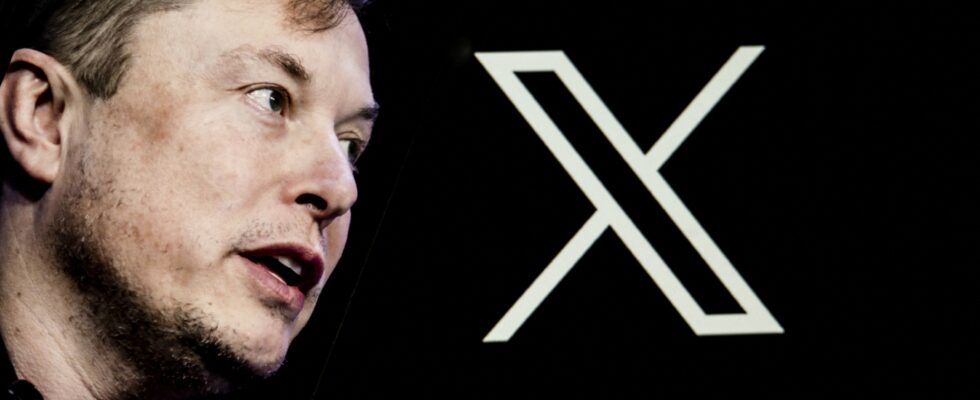A heavy challenge against Elon Musk’s social network. The European Commission accused social network X this Friday, July 12, of “misleading” users and violating EU rules with its blue check marks supposed to certify trustworthy sources of information, opening the way to heavy fines.
Brussels also believes that the social network is violating its transparency obligations regarding the advertisements it broadcasts and access to the platform’s data for researchers. “X now has the right to defend itself, but if our point of view is confirmed, we will impose fines and demand significant changes,” warned the European Commissioner for Digital Affairs, Thierry Breton.
This challenge is a first under the new Digital Services Regulation (DSA) that came into force last year to protect Internet users from content deemed dangerous. It could lead in the coming months to a final decision of non-compliance if the group does not correct the deficiencies noted, then to financial penalties of up to 6% of the annual global turnover of X (formerly Twitter). No deadline has been set for closing these procedures.
Evidence of abuse by ‘malicious actors’
“X designs and operates its interface for ‘verified accounts’ with the ‘blue tick’ in a way that is inconsistent with industry practice and misleads users,” the Commission said in a statement. “Anyone can sign up to obtain such ‘verified’ status, which undermines users’ ability to make free and informed decisions about the authenticity of the accounts they interact with. There is evidence that malicious actors are abusing” this feature, the EU executive added.
The European Commission, the EU’s digital police force, is also continuing investigations that could lead to two additional accusations: dissemination of illegal content and insufficient efforts against the manipulation of information.
Brussels had indeed expressed concern in September about the particularly high quantity of false information published on X, after tests carried out on several social networks. A preliminary procedure had been opened on 12 October, five days after the Hamas terrorist attacks against Israel. Then a formal investigation had been launched in December. The list of grievances was particularly long: low number of moderators, ineffective system for reporting illegal content, insufficient warning messages against violent images, etc.
A new strict European regulation
After buying Twitter in 2022, Elon Musk carried out a massive wave of layoffs that decimated the moderation teams. He defends a radical vision of freedom of expression, rejecting any form of censorship, even if he assures that he wants to respect the laws of each country.
Within the European Union, the new digital regulation, the DSA, requires all online platforms to set up a system for reporting problematic content and to act “promptly” to remove any illegal content or to make access to it impossible as soon as they become aware of it. In terms of advertising, platforms must also allow each user to know the parameters used to target them as well as the financers of the ads.
A group of 25 particularly influential digital players, including X, must also offer approved researchers access to the data that feeds their algorithms so that compliance with the regulation can be monitored.
Several major platforms targeted by investigations
In addition to Elon Musk’s social network, three other major platforms – TikTok, AliExpress and Meta – are the subject of formal proceedings by the European Commission, without having yet reached the level of incrimination announced Friday for X. After opening an investigation in April, TikTok was forced to suspend a function that rewarded users for time spent in front of screens and was accused of causing addiction. The social network, whose parent company is Chinese, is also the subject of another investigation opened in February for insufficient protection of minors.
The online shopping site AliExpress, a subsidiary of the Chinese giant Alibaba, has been targeted since March for the sale of dangerous products such as fake medicines. Finally, in April and May, the EU opened proceedings against the social networks Facebook and Instagram of the Meta group. They are accused of insufficient efforts against disinformation, but also of creating addictions among children and not sufficiently protecting them against “inappropriate content”.
